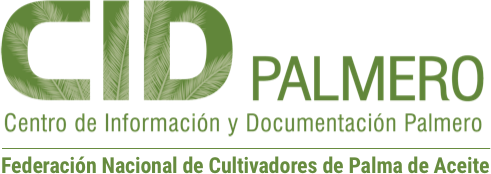| dc.creator | PIPOC 2007 International Palm Oil Congress Palm oil: Empowering change
August 26-30, 2007 :
Kuala Lumpur :
52116. | |
| dc.creator | Geri, Chiara
47099. | |
| dc.creator | Giorgetti, Lucia
47100. | |
| dc.creator | Madon, Maria
46240. | |
| dc.creator | Ruffini C., Monica
47101. | |
| dc.creator | Sharifah Shahrul Rabiah Syed Alwee
47102. | |
| dc.creator | Malaysian Palm Oil Board, MPOB
50178. | |
| dc.date | 2007. | |
| dc.description | Oil palm (Elaeis guneensis Dura x Pisifera) represents a good material for studying somaclonal-variation phenomena as a consequence of in vitro culture. The high genetic instability shown by oil palm plants both in vitro and in vivo is a highly probable source of variations in the regenerated plants and a possible cause of mantled phenotype. To better determine the in vitro reprogramming phenomena and their relation with the floral development, we studied floral genes expression by means of in situ hybridisation experiments with four probes isolated and provided by MPOB (#327 homologous to the Arabidopsis genes RLK5; pOP-SFB107 related to Festuca pratensis Xet1 protein, pOP-SFB6 and pOP-SFB97 connected to the family of Rho-related proteins). The probes were all expressed in situ both in immature inflorescences and in reproductive-like structure obtained from in vitro culture. According to our results there is a stage-specific expression during the in vivo floral development. Moreover, for all the probes so far tested, the clear hybridization signals present in the floral like structures in culture, point out to a deregulated gene expression along the in vitro differentiation processes included somatic embryogenesis. | |
| dc.description | Incluye referencias bibliográficas. | |
| dc.description | Oil palm (Elaeis guneensis Dura x Pisifera) represents a good material for studying somaclonal-variation phenomena as a consequence of in vitro culture. The high genetic instability shown by oil palm plants both in vitro and in vivo is a highly probable source of variations in the regenerated plants and a possible cause of mantled phenotype. To better determine the in vitro reprogramming phenomena and their relation with the floral development, we studied floral genes expression by means of in situ hybridisation experiments with four probes isolated and provided by MPOB (#327 homologous to the Arabidopsis genes RLK5; pOP-SFB107 related to Festuca pratensis Xet1 protein, pOP-SFB6 and pOP-SFB97 connected to the family of Rho-related proteins). The probes were all expressed in situ both in immature inflorescences and in reproductive-like structure obtained from in vitro culture. According to our results there is a stage-specific expression during the in vivo floral development. Moreover, for all the probes so far tested, the clear hybridization signals present in the floral like structures in culture, point out to a deregulated gene expression along the in vitro differentiation processes included somatic embryogenesis. | |
| dc.language | ng | |
| dc.publisher | Kuala Lumpur : MPOB, | |
| dc.subject | Reproducción. | |
| dc.subject | Palma de aceite | |
| dc.title | Study of in vivo and in vitro oil palm (Elaeis guineensis Dura x Pisifera) reproductive processes. | |
| dc.type | text | |


